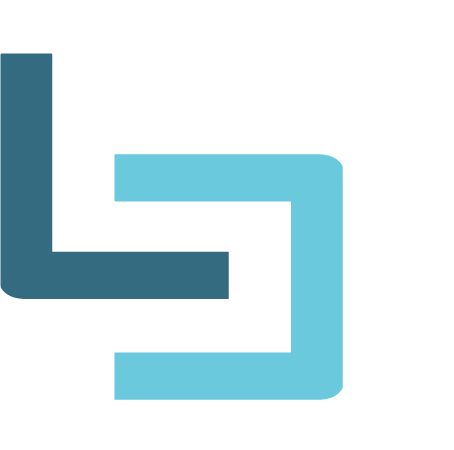
Debt consolidation and personal loans are not mutually exclusive from one another. In fact, it’s not uncommon for consumers to use personal loans to combine multiple debts and lower their monthly payments. If you are in over your head with debt and need to streamline your payments, you may have questions about debt consolidation and using personal loans to pay down outstanding financial obligations. We have answers.
Understanding Debt Consolidation and Personal Loans
Navigating the realm of debt management often leads individuals to consider options like debt consolidation and personal loans. Both strategies offer pathways to alleviate financial burdens, yet they operate on different principles. Debt consolidation involves amalgamating various debts—such as credit card balances, medical bills, or student loans—into a single loan. This consolidation aims to secure more favorable terms, such as reduced interest rates or extended repayment periods, thereby simplifying the repayment process and potentially lowering overall interest costs. By consolidating multiple payments into one, individuals gain greater control over their finances and can streamline their debt management efforts.
Differentiating Debt Consolidation and Personal Loans
Personal loans, in contrast, present a distinct approach to financial management. These loans are unsecured and can be used for a variety of purposes, including debt consolidation. Unlike debt consolidation loans, personal loans provide borrowers with a lump sum of money that can be utilized for any expense. While personal loans can serve as a tool for debt consolidation, they may not always offer lower interest rates compared to specialized debt consolidation loans. Moreover, personal loans may have stricter eligibility criteria and shorter repayment terms, making them suitable for certain financial situations but not others.
Choosing the Right Approach for Your Financial Needs
When deliberating between debt consolidation and personal loans, it’s essential to assess your unique financial circumstances and objectives. Debt consolidation may be the preferred option for individuals grappling with multiple debts, offering the convenience of consolidating payments and potentially reducing overall interest costs. Conversely, a personal loan might appeal to those seeking flexibility in fund usage or individuals with strong credit scores who can secure competitive interest rates. Ultimately, careful consideration of the advantages and drawbacks of each option, coupled with guidance from a financial advisor, can empower you to select the most suitable approach to manage your debt effectively and attain financial stability.
What Is Debt Consolidation, and How Does It Work?
Debt consolidation involves combining multiple debts from high-interest loans, credit cards and other obligations into one monthly payment. There are several ways to consolidate debt, including balance transfer, home equity loans and personal loans. When you use a personal loan to consolidate your debts, you use the loan to pay off every debt fully. Then, instead of making payments to multiple lenders on various dates, you make one monthly payment on your loan.
Why Is It Helpful?
Using a personal loan to consolidate debt comes with many perks.
- Personal loans typically have lower interest rates than credit cards or payday advances. Lower interest rates means lower monthly cost. Therefore, taking a loan to cover your debts could save you money in the long run.
- Instead of paying interest on multiple loans or balances, you only pay it on one. Again, creating an opportunity for cost saving.
- Because of the money you’re saving on interest, you can pay down your debt faster. Especially if you commit to using the savings each month to increase your monthly payments on the loan.
Finally, debt consolidation can also help you lower the amount you pay toward your debt on a monthly basis. While you should pay as much as you can each month, using a personal loan gives you peace of mind that if you cannot put forth a substantial amount each month, you don’t have to.
Are Debt Consolidation Loans Bad for Your Credit?
Like with any form of credit, the impact of a debt consolidation loan on your credit all boils down to how you use it. Initially, a personal loan can boost your score by reducing your credit utilization ratio. However, if you don’t alter your spending habits and continue to charge expenses to your now balance-free credit cards, a loan can just worsen your debt situation. If you put your credit cards away, make timely payments towards the loan and commit to not accumulating more debt, a debt consolidation loan can serve as a great way to boost your score.
Can Debt Consolidation Help With Payday Loans?
The short answer is, yes! Payday loans can seem like a quick solution when you need fast cash, but they often trap consumers. The payday cycle becomes vicious with repeatedly high fees to renew the same loan. According to one study, the average payday loan recipient was in debt for five months. During which time they paid $520 in fees just to borrow $325.
By consolidation your payday loan debt into a single personal loan you can enjoy the benefits outlined above.
- Lower interest rates
- Predictable monthly payments
- Flexible repayment terms
How Much Does It Cost?
The cost of debt consolidation depends on how much you need to borrow, what method you choose and the lender’s fees. For instance, the interest rates on personal loans vary greatly, which will impact your monthly payments. Your credit score and history will also dictate what interest rate the lender offers you.
If you consolidate through a balance transfer, you may be able to transfer multiple high-interest balances to a single card with a lower interest rate. Some balance transfer cards even feature 0% interest for the first nine to 21 months. However, many cards charge transfer fees, which could be as much as $300.
Consolidation through credit counseling is inexpensive and will cost you a low monthly management fee. That fee ranges from $25 to $35, on average.
Where Can I Apply for Debt Consolidation in Ontario?
Shopping around for a personal loan that offers the best rates and terms can be time consuming and a headache. LoanConnect takes the hassle out of the search by instantly connecting you with lenders within our network. By completing a single page application, we can match you with lenders in less than 60 seconds. Provide a few personal details and we will connect you with pre-approved loan offers to best suit your needs. When you’re ready to tackle your debt the easy way, use our online application.



